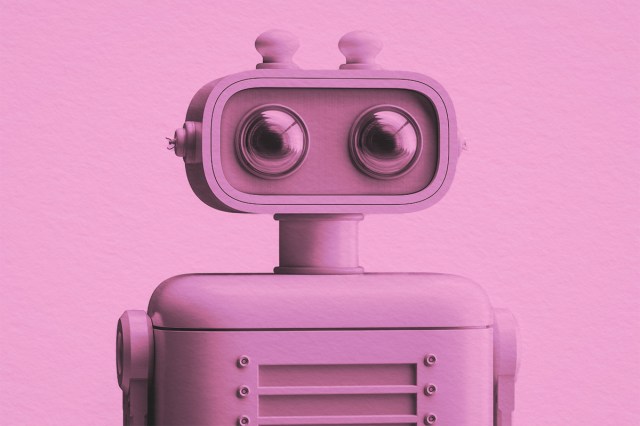
When you receive a loan, you usually have to pay it back. But with language, loanwords are eternal gifts that are there to stay. An English loanword is borrowed directly into the language with little to no modification. However, there are many words that are overlooked as loanwords because they’ve become so ingrained in the everyday English lexicon. Here are eight English words you might not know were borrowed directly from another language.
The word “shampoo” dates to the mid-18th century, and comes from the Hindi champo, which, according to the Online Etymology Dictionary, means “to press, knead the muscles.” It’s believed that champo is derived from Sanskrit’s capayati, meaning “kneads.” At first, English speakers primarily used “shampoo” in reference to massaging the body, before it came to specifically mean lathering hair, no later than 1860.
Czech playwright Karel Čapek almost certainly didn’t realize the indelible impact he’d have on the English language when he wrote his 1920 play R.U.R., which is short for Rossum’s Universal Robots. In this work, Čapek coined the term “robot,” which comes from the Czech robotnik, meaning “forced worker.” That term is derived from robota, meaning “forced labor,” which itself comes from the old Slavic word rabu, meaning “slave.” It’s an ominous origin story for a term that has come to apply to a range of topics, from sci-fi characters to automated processes.
You might have already known that “karaoke” comes from Japanese, but it’s actually a double loanword in the sense that it comes from an English word adopted by the Japanese, and then the Japanese word was adopted in English. “Karaoke” is a combination of the Japanese terms kara and oke, the former of which means “empty.” Oke, meanwhile, is a shortening of okesutora — the Japanese spelling of the English term “orchestra.” The Japanese invented karaoke machines in the 1970s, and both the term and the activity were soon adopted by fun-loving English speakers.
The concept of zero originated in ancient times widely popularized by Arabic mathematicians who spelled it sifr — derived from the Sanskrit sunya-m (“empty place”). The term was later adopted by Medieval Latin speakers, who wrote it as zephirum, which was shortened to zero by Italian speakers. That term then was adopted by French speakers, who wrote it as zéro. “Zero” made its way to the English language sometime around 1600. At that point, “zero” meant something akin to “the absence of all quantities considered as quantity.” However, as mathematics progressed in Europe, it came to mean the “initial point of progress or reckoning” by the mid-19th century, as well as “nothing” in a general sense.
In the modern English sense, one might relate “avatar” to the blockbuster movie of the same name or a character you create in a video game. The technological connotation is quite recent, however; the Online Etymology Dictionary claims it dates back to the 1992 novel Snowcrash by Neal Stephenson. But long before “avatar” was a term used by English speakers, it was used in Hindi to mean “descent of a Hindu deity to earth in an incarnate or tangible form.” It’s derived from the Sanskrit avatarana, meaning “descent.”
Whether you spell it “ketchup” or “catsup,” the name of this popular condiment can be traced back to various Asian languages. One theory is that it comes from the Tulu language of India, specifically the word kajipu, meaning “curry.” Another popular belief is that the Malay kəchap (fish sauce) and the two subsequent Chinese forms kéjāp (Guangdong) and ke-tsiap (Xiamen) influenced “ketchup.” However, the Chinese versions mean “eggplant juice” — no tomatoes to be found. “Ketchup” made its way to English by the late 17th century.
“Tattoo” is Polynesian in origin — specifically from the Tahitian tatau or Marquesan tatu, both of which mean “a mark made on skin.” It was adopted by English speakers in the mid-18th century. Prior to then, there was no convenient word for the concept. Instead, tattoos were referred to by names such as “printed marks,” which paraphrases the entry for Leviticus 19 in the King James Bible.
“Tornado” is believed to be borrowed from the Spanish tronada (“thunderstorm”). It made its way into English sometime in the mid-16th century, and came to refer to a violent windstorm by the 1620s. Up until the 17th century, English speakers spelled it as “tornatho” and “turnado” before settling on the spelling we still use.

















